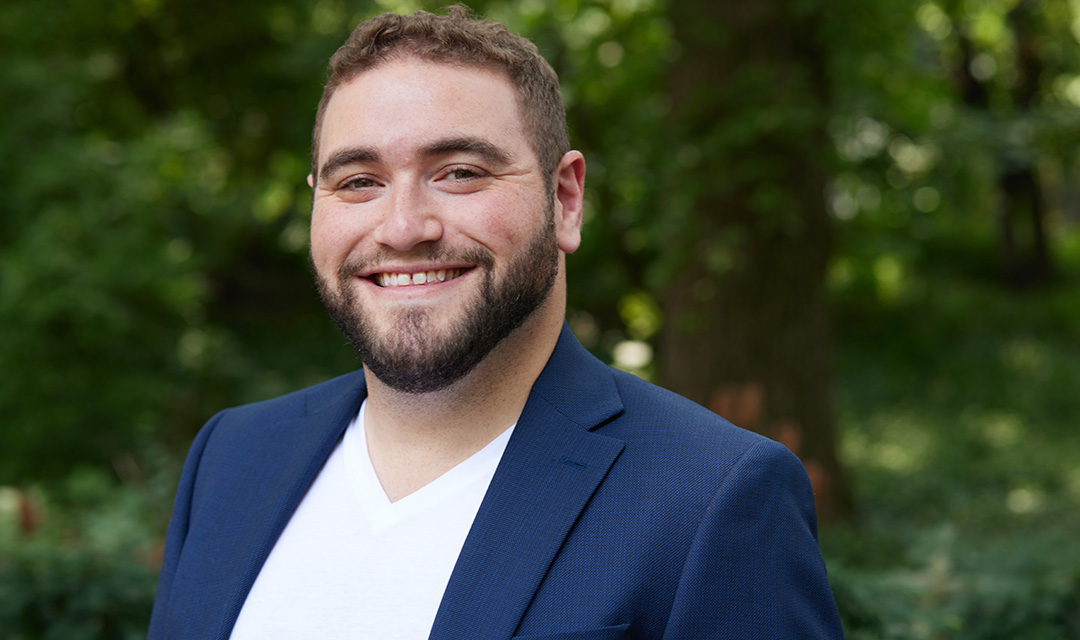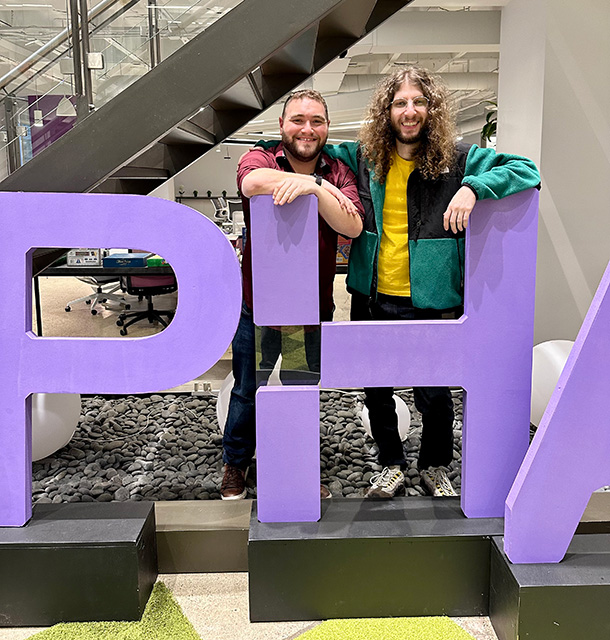Alum spotlight: Justin Weinberg
Lauren Smith
Apr 7, 2025

Source: Justin Weinberg
Where some might see a chemical engineering degree, Justin Weinberg ('17) sees a license to problem-solve. "And I've had to solve a lot of different problems in growing a startup," he says. Weinberg's company, Aktiv Learning, brought interactive STEM education to mobile devices.
His experience as a Ph.D. student has proven very applicable to being a startup CEO. "In both roles, you're basically working on a huge, unbounded problem that no one has attempted to solve before," says Weinberg. "You often think of a Ph.D. as highly specialized training in a research topic, but for me, it's been useful in many more ways than that."
You often think of a Ph.D. as highly specialized training in a research topic, but for me, it’s been useful in many more ways.
Justin Weinberg, Co-founder, Aktiv Learning
Weinberg's doctoral research focused on a class of pharmaceuticals called monoclonal antibodies. These proteins have been engineered to act like the antibodies that the immune system naturally makes. Each type of monoclonal antibody is designed for a specific target, like a cancer cell, chronic disease, or COVID-19.
Production of monoclonal antibodies is typically performed by cell culture, and Weinberg worked to improve the process of purifying the drugs. Along with the desired antibody, the cultured cells produce other proteins, as well as DNA and other materials. Industry relies on a process called Protein A chromatography as a major step to purify monoclonal antibodies.
"Protein A is typically found in bacteria, and its life purpose, if you want to think of it that way, is to find antibodies and bind to them," explains Weinberg. Protein A chromatography uses isolated Protein A to bind to the antibodies produced in cell culture. The standard process yields about 97-98% purity. By modifying Protein A with a polymer, Weinberg enhanced the selectivity of the process and achieved higher purity.
Weinberg chose the chemical engineering Ph.D. program at Carnegie Mellon to position himself for an advanced career in the biotech industry. He had many opportunities to network with and present his research to people from industry, resulting in promising job leads. Other aspects of his training and interests, however, were slowly converging on entrepreneurship.
From a young age, Weinberg has been passionate about using technology to learn. He fell in love with math and science early in his education, which inspired him to take more advanced courses, then to get involved in research, and then to intern and work in the biotech industry.
Along the way, he noticed that many of his classmates weren't feeling the same passion for math and science. Seeing his high school friends struggle to master the subjects, Weinberg started tutoring them. Then he opened a small tutoring business to help more students in his hometown of New York City.
As he continued tutoring through college, Weinberg was looking for new ways to advertise. To show potential customers his tutoring style, he recorded himself guiding a student through a chemistry problem. When he showed the video to a few friends and students, the response was overwhelming: they wanted more videos. "I thought to myself, 'If I make more of these, what would I do with them? Would I sell them somehow? Would I put them on YouTube?'" recalls Weinberg.
It was 2010. YouTube was still fairly new, and video lessons were not widely used for educational purposes. Weinberg stayed centered on his interest in using technology to support learning. He noticed the exploding popularity of smartphones and decided to build an app where he could host the video lessons. He recruited Igor Belyayev, an undergraduate classmate, to help build it.

Source: Justin Weinberg
Justin Weinberg and Igor Belyayev at Top Hat headquarters
More than 500,000 students downloaded their chemistry tutoring app, based on word of mouth alone. From that response, Weinberg understood that students liked using their phones as a tool to help them absorb information. "That sparked an obsession for me: how do I make this better? The answer to that didn't come until a few years later," he recalls.
While a Ph.D. student at Carnegie Mellon, Weinberg became more familiar with the active learning method. "It's absolutely critical for students in STEM fields to learn by doing," he says. "In math, you need to be solving and rearranging the equation. In chemistry, you need to be drawing the Lewis structure. By going through the productive struggle and making mistakes, you come to really understand what you're working on."
Weinberg and Belyayev built a platform to guide chemistry students to draw Lewis structures, write chemical equations, and perform dimensional analysis on their phones. In 2016, they founded Aktiv Learning, while Weinberg was still a Ph.D. student.
With Aktiv's initial chemistry product, their platform was eventually implemented by more than 700 colleges and universities across North America. Weinberg remembers making sales calls from Doherty Hall, in between writing paragraphs of his dissertation. His National Science Foundation Graduate Research Fellowship allowed him to officially devote part of his time to advancing STEM education, and Weinberg is grateful that his advisor, Todd Przybycien, supported his work to launch Aktiv.
Weinberg and Belyayev created a second product, for math, and then in 2022, Aktiv Learning was acquired by Top Hat. As vice president of product for Top Hat, Weinberg worked to accelerate the growth of the Aktiv platform and to apply what he'd learned while building Aktiv to other Top Hat products. He also worked on the integration of the two companies.
Recently, Weinberg has stepped back from Top Hat and is now mentoring first-time founders while pursuing ideas for new ventures. "I realized in my heart that I'm an entrepreneur," he says, "and that's where I intend to focus going forward."
